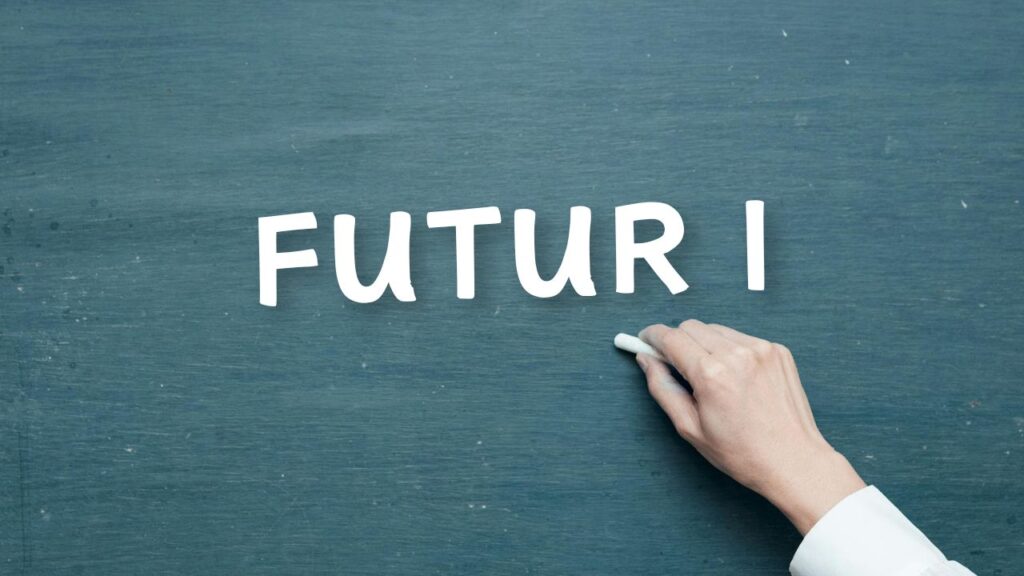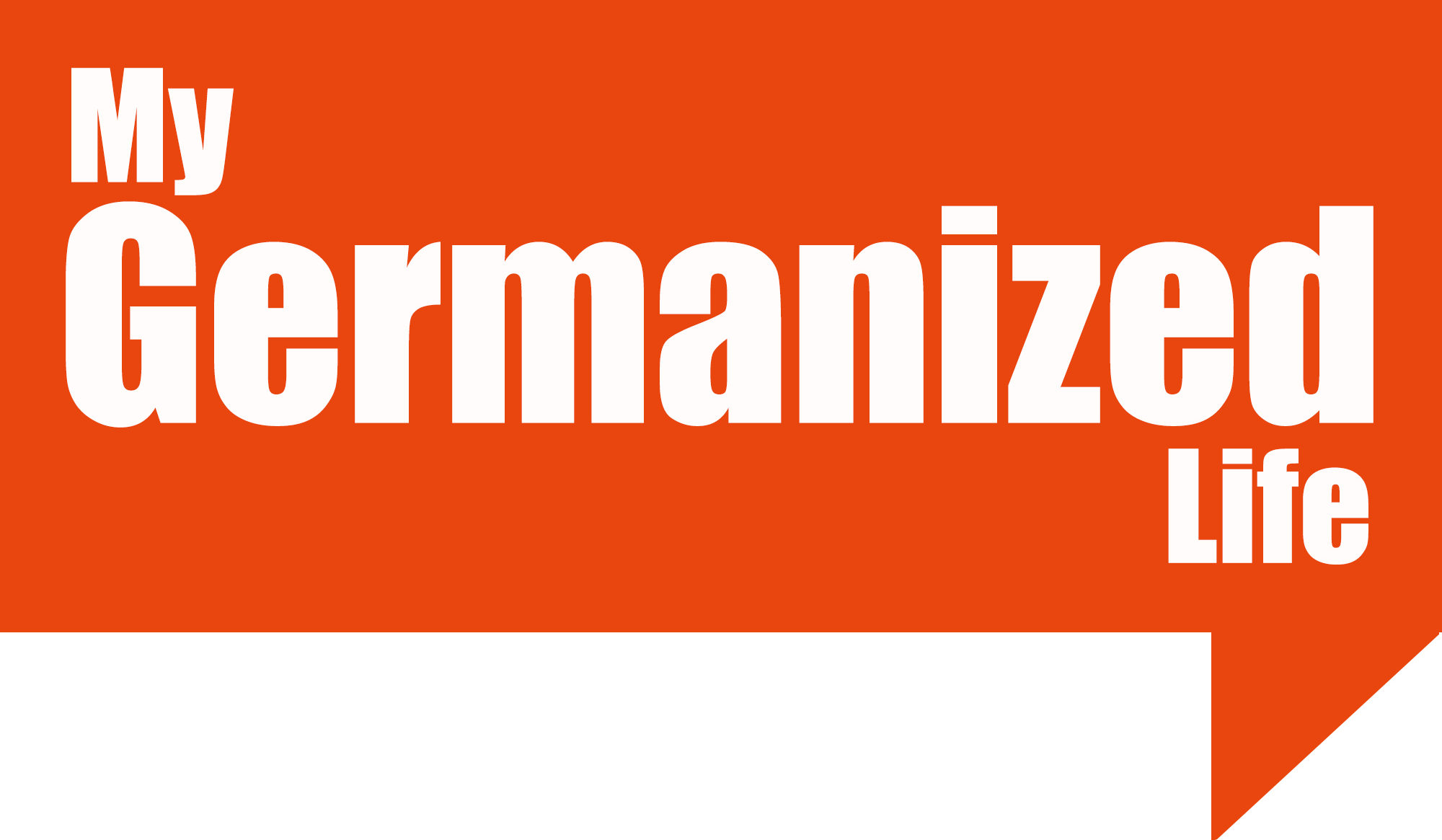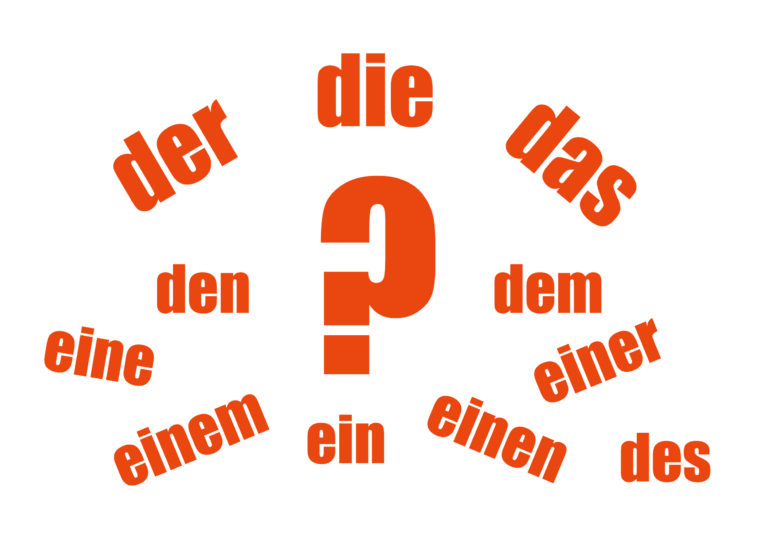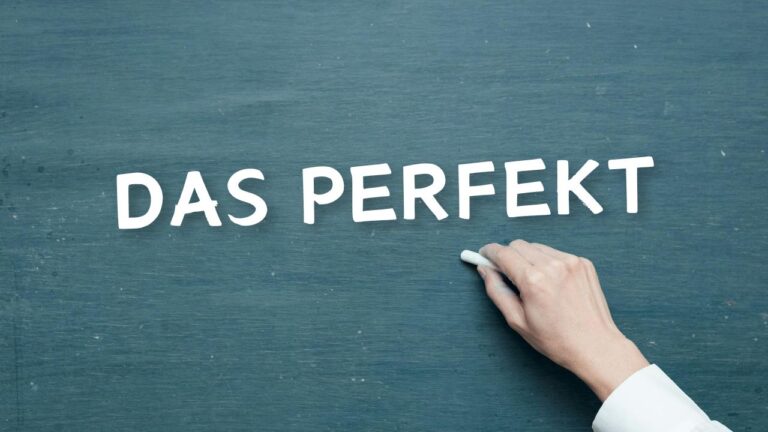Planning to talk about future events in German? The Futur I tense is your go-to German future tense! It’s like saying “I will go” in English. Let’s break it down together in a fun, easy way.

When Should You Use Futur I?
Futur I helps you talk about the future, make guesses, or share plans. Here’s how:
| Use Case | Example (German) | Example (English) |
| Talking about the future | Ich werde morgen einkaufen. | I will go shopping tomorrow. |
| Making assumptions | Es wird heute regnen. | It will rain today. |
| Expressing intentions | Wir werden im Sommer verreisen. | We will travel in the summer. |
When Germans Really Use Futur I
- Predictions: Es wird kalt sein. (It will be cold.)
- Promises: Ich werde dir helfen. (I will help you.)
- Assumptions: Er wird zu Hause sein. (He is probably at home.)
💡 Tip: In casual conversations, Germans often use the present tense with a time word for future events.
- Ich gehe morgen einkaufen. (I’m going shopping tomorrow.)
Use Futur I when you want to emphasize the future or make a clear prediction.
How to Build a German Future Tense (Futur I) Sentence
The secret formula?
Werden (a helper verb) + main verb in its infinitive form.
- The conjugated verb (werden) takes the second position.
- The infinitive verb slides to the end.
Structure: Subject + werden (conjugated) + other details + main verb (infinitive)
Conjugation of “werden”
| Pronoun | Werden Form | Example |
| ich | werde | Ich werde lernen. (I will study) |
| du | wirst | Du wirst gewinnen. (You will win) |
| er/sie/es | wird | Er wird lachen. (He will laugh) |
| wir | werden | Wir werden reisen. (We will travel) |
| ihr | werdet | Ihr werdet lesen. (You all will read) |
| sie/Sie | werden | Sie werden helfen. (They/You will help) |
Examples:
- Ich werde später anrufen. (I will call later.)
- Er wird nächste Woche arbeiten. (He will work next week.)
German Future Tense Questions? Flip the subject and werden
Turning statements into questions is simple! In German, you often switch the position of the subject and the conjugated verb (werden).
Yes/No Questions:
- Wirst du morgen kommen? (Will you come tomorrow?)
- Wird er heute arbeiten? (Will he work today?)
Structure:
Werden (conjugated) + subject + other details + main verb (infinitive)
Wh- Questions (using question words like “wann,” “wo,” or “warum”):
- Wann wirst du ankommen? (When will you arrive?)
- Warum wird sie später kommen? (Why will she come later?)
- Wo wirst du wohnen? (Where will you live?)
💡 Tip: The question word comes first, followed by the conjugated werden, then the subject.
Test Yourself on the German Future Tense: Fill in the Blanks!
Final Thoughts on the German Future Tense
The German Futur I tense is a fantastic tool for expressing future plans, making predictions, and sharing intentions. While native speakers often rely on the present tense with time indicators for casual conversations, mastering Futur I adds precision and clarity to your German.
Remember, the key is simple: werden + infinitive. Once you get comfortable with the structure and word order, using Futur I will feel like second nature.
Keep practicing, try forming your own future sentences, and soon you’ll be confidently chatting about your plans, dreams, and predictions—all in German. Viel Erfolg!






I have not checked in here for some time as I thought it was getting boring, but the last few posts are good quality so I guess I will add you back to my daily bloglist. You deserve it my friend 🙂